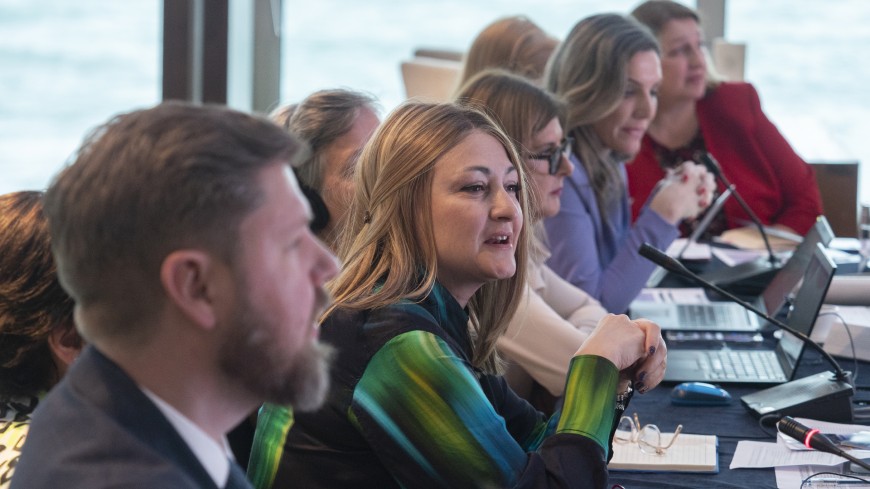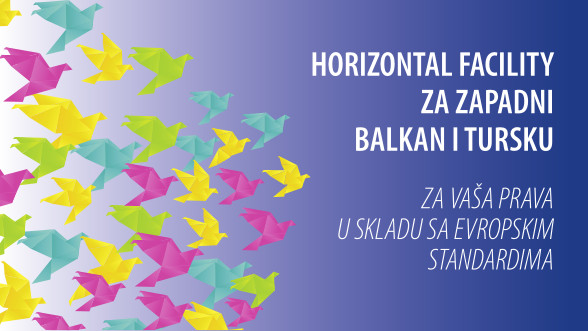Strengthening prevention of trafficking in human beings and ensuring identification, protection, and access to remedies for victims of trafficking are crucial for upholding standard human rights values. The programme continues to work closely with institutional partners and key actors in the field in their efforts to strengthen legislation, policy, and practice to effectively combat human trafficking and respond to new challenges and trends in the Western Balkans.
A workshop on conducting forensic interviews with presumed victims of trafficking in human beings for the staff of the Centre for Human Trafficking Victims’ Protection (Centre) was organised in Vrdnik, Serbia, on 5-6 March 2024. The participants upgraded their knowledge on how to better communicate with vulnerable persons, establish trust, and avoid further traumatisation. Only in 2023, the Centre staff had 137 interviews with potential victims of human trafficking and identified 66 victims among them. A well-conducted interview is the pre-condition for an evidence-based opinion of the Centre and an appropriate identification of victims of human trafficking.
The State Commission on Compensation for Victims of Violent Crimes was established in North Macedonia aiming to support victims of violent crimes including victims of trafficking in human beings by awarding a state compensation of up to 5,000 euros for the injustice suffered. This constitutes an important step forward in ensuring better protection of human rights for the victims of violent crimes and the fight against human trafficking in North Macedonia. Since 2017, the programme in North Macedonia has supported the authorities and civil society organisations in the process of making state compensation accessible to victims of human trafficking.
In Montenegro, a specialised training programme, focused on empowering lawyers specialising in supporting victims of trafficking in human beings, took place in January. It aimed to equip legal professionals with the necessary skills and knowledge to effectively provide free legal aid. The training session concentrated on refining skills related to approaching victims, establishing meaningful communication, adequately preparing for legal proceedings, and safeguarding victims against further harm through secondary victimisation.


